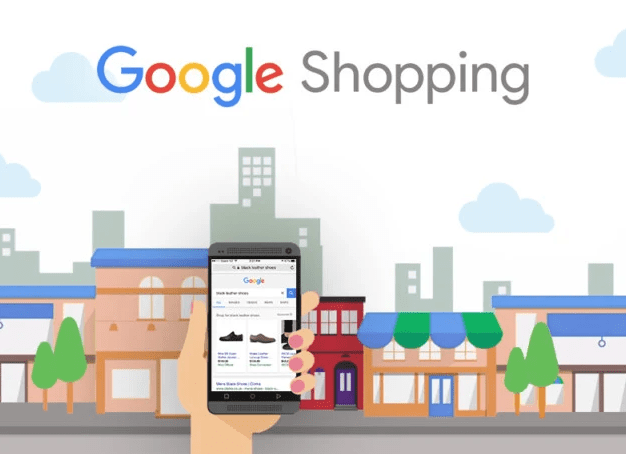Around a third of internet users start their product search on Google, snubbed only by Jeff Bezos’ tyrannical Amazon. This feature has grown hugely since the dawning of the internet age and has become vital for an eCommerce store to manage their Google presence. To allow for successful business you want to make sure that you are following all the right tips to make sure that you are being noticed by the right customers. The way you structure and manage your digital marketing strategy is imperative in today’s climate, and every business will want to look at how to optimise their Google shopping feed. The feed works in the same way SEO works for websites. The better your Google shopping feed is managed the more chance you have of google trawling the website and advertising it on their feed, without the need to employ Google shopping experts. This blog will look at the 5 simple hacks to improve your Google shopping feed and be seen in front of your target audience.
1.GTIN
You may not have heard of a GTIN or Global Trade Item Number, but these can be very important when you want to optimise your Google shopping feed. This number allows the Google algorithm to include you in much more funnelled advertising and allow, ultimately, more traffic to hit your website. A GTIN is given by the manufacturer and required if you are reselling products. Some products where you are the only seller or they are antiques will not require GTIN numbers, this similarly applies to multi-packs and bundles. But what’s so good about these numbers, you may ask? The main benefit from utilising a GTIN on your product is the way Google uses the number to create a funnel with your advert/product alongside other products of the same category when searched in the engine. This means, provided Google favours your GTIN, you can advertise and reach a larger audience through the use of Google’s own system. This can optimise google shopping feeds for your company and gain more traffic through your website due to the exposure created. This works similarly well with the Google algorithm which incorporates GTINs into ‘best’ and ‘top’ searches. Coupled with sound reviews making it onto one of these searches can truly benefit your business and lead to your company having much better trade. All it takes is the inclusion of a number!
2- Dynamic Repricing
Competition in the internet age is like none before. The globalised market is fighting against everyone else and so it can be hard to make inroads with your brand. What you want to certainly avoid doing, regardless, is pricing uncompetitively. Dynamic repricing is a sure fire way to optimise Google shopping feeds for your eCommerce strategy. Simply put, a lower price attracts more custom. Bearing this in mind, there are often prices that can only go so low or have reached their bottom limit. This is something to remember as you don’t want a reputation for cheap junk. To use dynamic repricing well you want to use third party systems like WisePricer or Prisync to scope out other competitors of your product and see what they are pricing the product at. In order to allow for your product to sell you want to be in and round the competition if not the cheapest there to assure that you are being brought into the search engines results and being able to optimise Google shopping feeds for you business by adjusting your price accordingly and frequently. Be careful not to do this too often and allow customers to buy something, then drop the price the next day and face losing custom due to their negative attitude of feeling like they have been swindled. Retaining customers is imperative after all.
Also Read: How To Get Stars On Google Ads
3- Accurate Product Information
Providing accurate information about the product you are selling is a perfect way to help optimise your google shopping feed. Not only do you want to make sure Google’s algorithm picks out your product to advertise, but you also want to appeal to potential customers once you have reached there. Firstly, Google uses the title to pick its adverts initially. This means you have to have a specific and exact title for your product. Alongside this, you want to have categorised your product specifically. This updates your relevance and means you are not facing extra competitors which you shouldn’t have to and must reflect your landing page exactly. For example, categorising your fancy dress costumes into witches and zombies rather than halloween costumes channels the focus and makes it easier to optimise your Google shopping feed. Adding in miscellaneous additionals like size, condition and brand are all necessary to allow for a comprehensive chance at battling with competitors. Furthermore, providing a description for potential customers is important as you can include keywords and secondary titles you couldn’t fit in before – adding detail to the product, but avoiding ‘fluff’. Importantly, organising your product type can be very useful and particularly so for more niche products. You want to make it as specific as possible to allow you more chance of being picked out by Google’s algorithm and optimising the Google shopping feed for your business. It’s a way of specifying your product further and reaching a more finely tuned audience which in theory increases sales. In the main, accurate product information not only builds a rapport with the google feed system, but also creates a trusting relationship between the consumer and your product which is valuable in the digital age.
4- Target Audience
At every given point in your eCommerce campaign you want to have your target audience in mind. After all they are the folks you want to entice into buying your product. Your product, unless it is groundbreaking, is more than likely, not going to appeal to everyone. That’s why you have to carefully craft a target audience and know them well. Running experiments to identify your optimised techniques at drawing these customers in and following feedback is important in this case. This can be as easy as changing the thumbnail or colour of your landing page but worth knowing. Alongside a good way to boost eCommerce traffic and a way for you to optimise your Google shopping feed is to allow for a smooth customer journey from start to finish and the creation of a sound customer experience. Identifying ways to make the route from advert to transaction is a superb way to firmly impress the market with your product. Similarly, you want the customer experience to be a showcase of the best you have, which means prioritising your best or most popular products and allocating resources to back them accordingly. At the end of the day it’s much easier and better to sell 1000x one product than trying to become the next brick-a-brack online store selling 1000x different products. By scoping in on your target audience whilst honing your product and customer experience you can achieve a much more streamlined eCommerce business strategy and ultimately optimise that Google shopping feed.
5- High Quality Image
You don’t need a fully configurable server or a vast AI program to revolutionise your Google shopping feed. A solid quality picture which accurately represents the product you want to sell is a good start. Often undervalued in eCommerce is the thumbnail picture used to advertise your product. In the same way you wouldn’t enter a brick and mortar shop that looked dirty or not aesthetically appealing, customers won’t buy your product online if the picture isn’t good. A clear background, focused picture of the product is crucial to your online business strategy and a pivotal way to optimise google shopping feeds for your brand. It’s the first thing that customers see and you want to make a good impact on potential and returning customers alike. Treat it like a first date, you want to make a good impression – right? As a rule of thumb you want to use high-quality original photos with no watermarks, logos or text on them.
Also Read:Google Maps Mistakenly Reveals Images of a Secret Military Base in Taiwan
Conclusion
Whilst the product you’re selling has to be top-quality it doesn’t matter how good it is if you don’t have a very strong digital marketing campaign. You need to be able to reach your customers for you to impress them with your product. In order for you to do this successfully in today’s oversaturated online market, you will want to make sure you have fully streamlined your business strategy to optimise your Google shopping feed to allow the Google product feed to favour your product and propel it into favourable ad positions. How much you get out of it will reflect the amount of effort you put into it, but ultimately you need to focus on this strategy to improve your chances of profiting from your eCommerce business. These 5 ways to optimise your Google Shopping Feed will help you to make waves in your online campaign, but the hard work does not stop there, you will have to constantly keep up to date and consistently tweak the strategy to allow for continued success.











